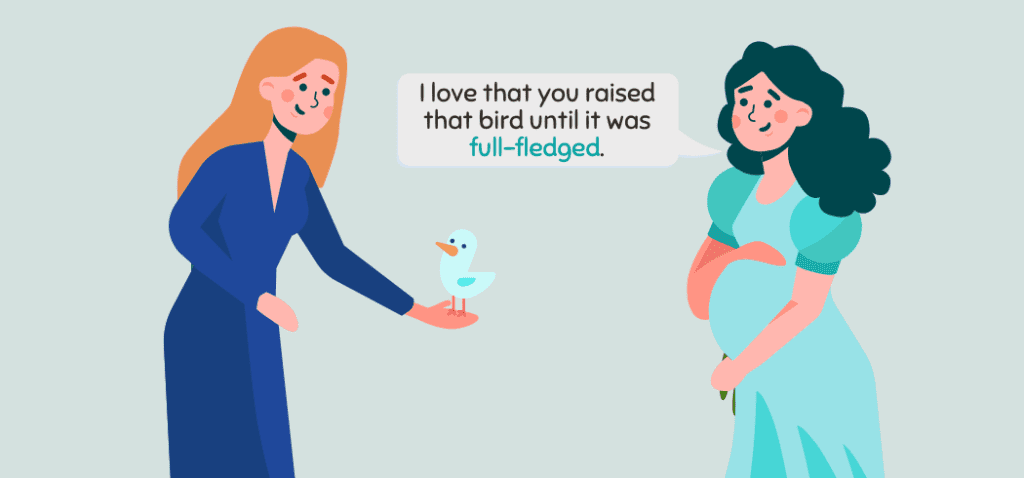I hate it when there are two versions of the same word because I never know which one is best to use. Like the adjective full-fledged. Or is it fully fledged? It’s a valid question and one I’ll break down and explain to you. I even included some sentence examples showing how to use both.
Is It Full-Fledged or Fully Fledged?

Technically, both are correct. In itself, the word fledge is a verb that people use to describe the process of raising a baby bird from the egg until it’s ready to fly. So, when it comes to the terms full-fledged or fully fledged, it basically means when something is finished, fully grown, or ready. Also, it doesn’t just apply to birds; it can be used to refer to anything that has fully developed.
Which One Do You Use?
That depends on where you live or what audience you’re writing for. In North America, we tend to lean towards the use of full-fledged with the hyphen. But outside of North America, the UK in particular, you’ll find that the version fully fledged is more common.
What About Full Fledge?
I’ve seen this version of the phrasal adjective used before, even in traditionally published texts. I know I have because I’ve even used it in conversation myself. But unfortunately, this is an incorrect spelling or misspelling.
Should Full-Fledged Be Hyphenated?
Yes. While you might see it spelled as full fledged without the hyphen, the correct way to use it is actually with the hyphen included. You can get away with it in informal contexts like texting or social media, but if you’re using the term for school or work, I’d highly advise you format it correctly. With the fully fledged version, however, you don’t need to use a hyphen.
What Is the Origin of Full-Fledged?
I’m not sure when it was first used, whether figuratively or literally. But I do know that it comes from the old English word full (meaning filled, perfect, finished, etc.) and fledged (meaning to be furnished in feathers).
Using the Term Full-Fledged in a Sentence

- I don’t want a puppy from the mill. I want to adopt a full-fledged senior dog and care for it in its final days.
- I love that you raised that bird until it was full-fledged.
- My sister just got a full-fledged bird, and it sings all night long.
- The world is on the brink of a full-fledged war, and everyone knows it.
Using Fully Fledged in a Sentence
- The city is almost done working on the subdivision, and we’ll soon have a fully fledged family park and playground to take the kids.
- I can’t believe my son is almost a fully fledged teenager. He’ll be headed off to college before we know it.
- My mother wants to buy a turn-key home when she retires; a fully fledged property she can just move right in.
Synonyms of Full-Fledged
- Complete
- Developed
- Done
- Finished
- Whole
- Full-grown
- Fully grown
- Mature
- Blooming
- Experienced
Fully Fledged Knowledge
And there you have it! You shouldn’t be confused about whether it’s full-fledged or fully fledged after reading my quick little guide. Both versions of the adjective are correct, and it’s up to you which one you’d like to use. The one with a hyphen is more common here in North America, while fully fledged is used more in places like the UK and Europe.

Comments are closed.